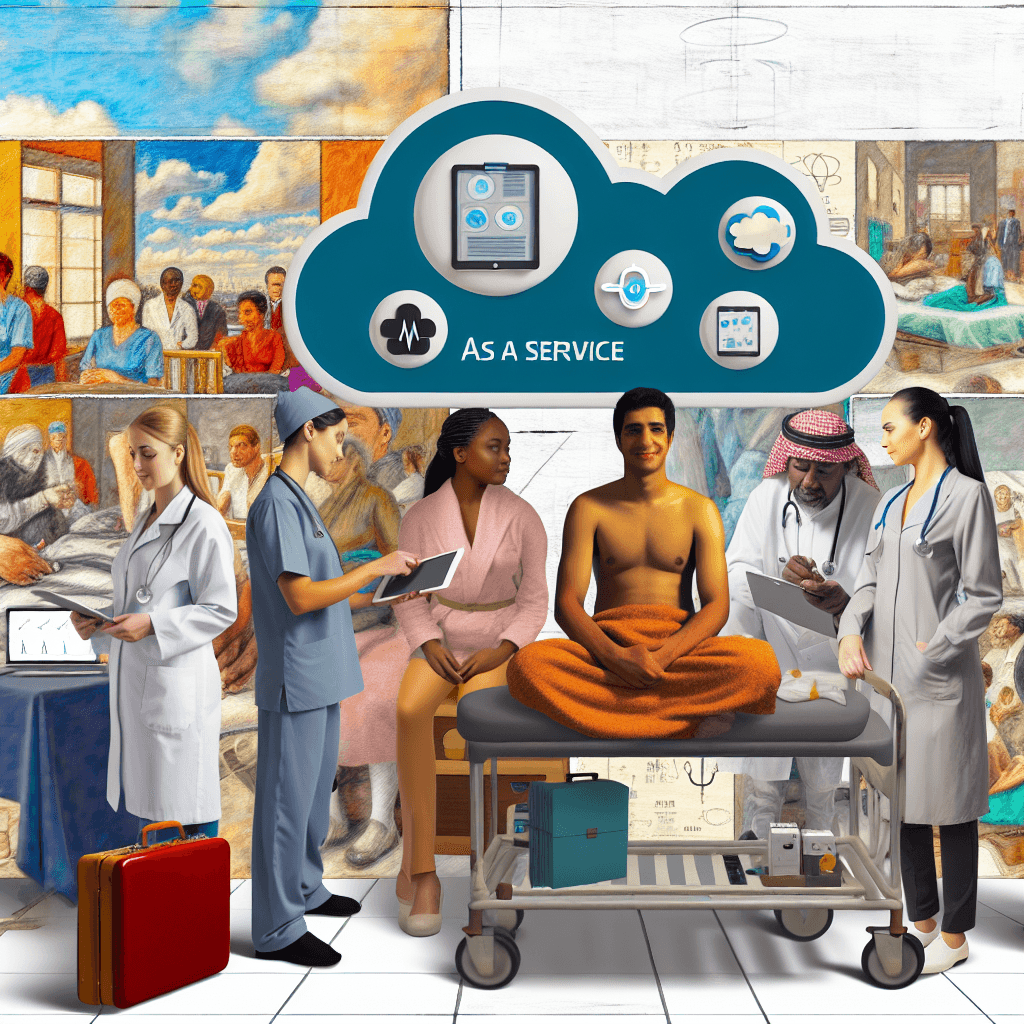Explore the growing market of Healthcare SaaS solutions, offering scalable, cost-effective services for improved medical care and management.
Healthcare Software As A Service Market

Table of Contents
- Exploring the Healthcare Software as a Service (SaaS) Market
- Understanding Healthcare SaaS
- Benefits of Healthcare SaaS
- Challenges in the Healthcare SaaS Market
- Key Players in the Healthcare SaaS Market
- Case Studies: Success Stories in Healthcare SaaS
- Improving Patient Outcomes with EHR
- Streamlining Operations with Practice Management SaaS
- Future Trends in the Healthcare SaaS Market
- Conclusion
Exploring the Healthcare Software as a Service (SaaS) Market

The healthcare industry is undergoing a significant transformation, driven by the rapid evolution of technology. Among the most impactful developments is the rise of Software as a Service (SaaS) solutions, which are reshaping how healthcare providers manage data, interact with patients, and streamline operations. This article delves into the healthcare SaaS market, exploring its benefits, challenges, key players, and future trends.
Understanding Healthcare SaaS
Healthcare SaaS refers to software applications hosted remotely on the cloud, which healthcare providers can access and use over the internet. This model differs from traditional software delivery that requires direct installation and maintenance on local servers or computers. The SaaS model in healthcare not only simplifies IT requirements but also enhances data interoperability, scalability, and accessibility.
Benefits of Healthcare SaaS
The adoption of SaaS in healthcare offers numerous benefits:
- Cost Efficiency: SaaS reduces the need for upfront hardware investments, ongoing maintenance, and software upgrades, converting capital expenditure into operational expenditure.
- Scalability: Healthcare providers can easily scale their SaaS solutions up or down based on their changing needs without significant additional costs.
- Accessibility: Being cloud-based, SaaS applications can be accessed from anywhere, facilitating remote healthcare services and telemedicine.
- Security and Compliance: SaaS providers typically offer robust security measures and are responsible for ensuring that the software complies with regulatory standards such as HIPAA.
Challenges in the Healthcare SaaS Market
Despite its benefits, the healthcare SaaS market faces several challenges:
- Data Security Concerns: The handling of sensitive patient data raises significant security concerns, necessitating advanced cybersecurity measures.
- Integration Complexities: Integrating SaaS solutions with existing healthcare systems can be complex and require substantial IT expertise.
- Regulatory Compliance: Healthcare is a highly regulated industry, and SaaS providers must continuously ensure their solutions comply with evolving laws and regulations.
Key Players in the Healthcare SaaS Market
Several leading companies dominate the healthcare SaaS landscape, each offering unique solutions tailored to various aspects of healthcare management:
- Electronic Health Records (EHR) Providers: Companies like Epic Systems and Cerner offer SaaS-based EHR systems that are central to modern healthcare facilities.
- Medical Billing and Revenue Cycle Management: Firms such as Athenahealth provide SaaS solutions that streamline billing processes and improve revenue cycle efficiency.
- Telemedicine: Platforms like Teladoc and Amwell use SaaS to offer remote clinical services, significantly expanding access to healthcare.
Case Studies: Success Stories in Healthcare SaaS
Several case studies highlight the impact and potential of SaaS solutions in healthcare:
Improving Patient Outcomes with EHR
A large hospital network implemented a SaaS-based EHR system from Epic Systems, which led to improved data accuracy, reduced paperwork, and better patient outcomes. The system’s real-time data access allowed for quicker decision-making and more personalized patient care.
Streamlining Operations with Practice Management SaaS
A mid-sized clinic adopted a practice management SaaS solution from Athenahealth, which streamlined administrative tasks and improved billing accuracy. This shift not only reduced administrative overhead but also enhanced patient satisfaction by minimizing billing errors and wait times.
Future Trends in the Healthcare SaaS Market
The future of healthcare SaaS is promising, with several trends likely to shape its trajectory:
- Artificial Intelligence and Machine Learning: These technologies are increasingly being integrated into SaaS solutions to provide predictive analytics, enhance decision-making, and improve patient care.
- Increased Focus on Patient Experience: SaaS tools are evolving to offer more patient-centric features, such as personalized portals and mobile apps that enhance patient engagement and satisfaction.
- Expansion of Telemedicine: The COVID-19 pandemic has accelerated the adoption of telemedicine, and SaaS platforms are central to its expansion, offering scalable and efficient solutions.
Conclusion
The healthcare SaaS market is poised for continued growth, driven by technological advancements and the increasing demand for efficient, cost-effective healthcare solutions. While challenges such as data security and regulatory compliance persist, the benefits of SaaS, including scalability, cost efficiency, and enhanced accessibility, make it a compelling choice for healthcare providers. As the industry continues to evolve, healthcare SaaS will play a crucial role in shaping the future of healthcare delivery.
In conclusion, embracing healthcare SaaS solutions offers a pathway for healthcare providers to enhance operational efficiency, improve patient outcomes, and navigate the complexities of modern healthcare. As this market matures, it will undoubtedly unveil new opportunities and innovations that will further transform the healthcare landscape.








